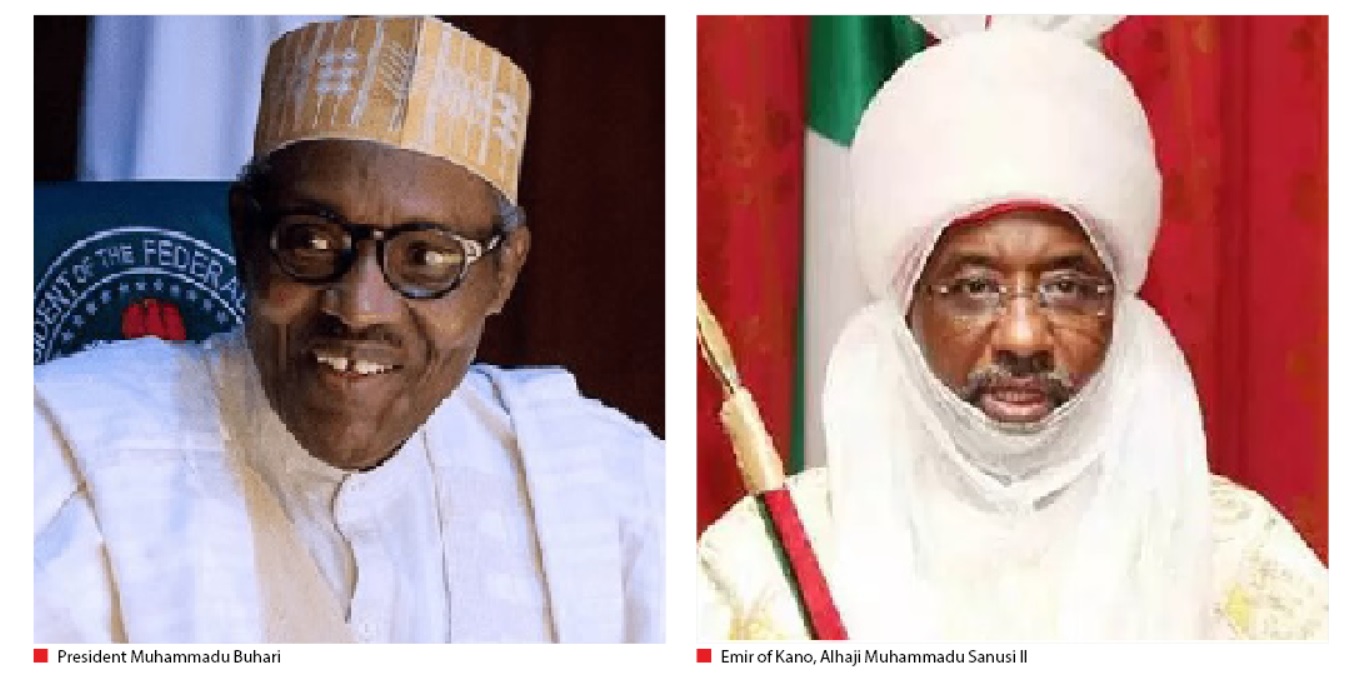The ‘Next Level’ on an Emir’s blueprint
I t’s more than obvious that Nigerians can’t wait to see the start of the new government, ie President Buhari’s second term. The president himself made it a curious thing to look out for, when he promised two things, soon after he was reelected. On the one hand he said he will do better than […]

| I |
t’s more than obvious that Nigerians can’t wait to see the start of the new government, ie President Buhari’s second term. The president himself made it a curious thing to look out for, when he promised two things, soon after he was reelected. On the one hand he said he will do better than before and on the other he warned about a tough ride ahead.
In other words, the Next Level they promised might be a double-edged sword. But, whatever eventually happens, in PMB’s second tenure, the focus should be on ordinary Nigerians who are simply craving a better life.
Apart from our usual yearning for good social amenities, like hospitals, housing, good roads, transportation and quality education, an adequate take-home pay is the darling dream of our hardworking country men and women. And most of the time, it has eluded them.
However, the recently approved minimum wage seems set to address this. The only snag seems to be how to fund the new pay package. Those who proposed a hike in VAT (value added tax) have won the ear of the federal government. But there are warnings from most quarters that hiking VAT will not serve the nation well. The latest warning came from no less a figure than the national leader of the ruling party, Asiwaju Bola Tinubu, who made the call at his birthday celebration on Thursday.
So what should we expect in the Next Level? Our policy makers might be neck-deep in packaging what they want us to see, but as far as people like me are concerned, an idea such as the one proferred by Emir Muhammad Sanusi II of Kano, might just he what the Nigerian worker wants to hear.
Speaking at an event almost two years ago, the banker-turned-monarch advocated a slashing of the remuneration of federal lawmakers, as a way to generate the funds needed to pay newly employed youths and decongest the labour market. By extension, his idea can also be used to provide funds needed to improve existing workers’ pay.
In the Emir Sanusi’s own words:
“….Change should start with the National Assembly. A senator receives N36 million monthly. If this is divided into two, it comes to N18 million. The second half of N18 million can be used to create jobs for 200 Nigerians, each earning N90, 000 monthly.
“When you multiply 200 people by 109 senators, this will give 21,800 Nigerians gainful employment. In short, 200 Nigerians will be able to live a comfortable life on half a senator’s monthly salary.”
Further highlighting the disparity in the standard of living of public office holders, particularly the legislators, Muhammadu Sanusi argued that a member of the House of Representatives receives N25 million monthly.
“Half of that amount is N12.5 million, which is enough to employ 135 Nigerians with a monthly salary of N92, 500 each. Nigeria has 360 members in the House of Representatives. Half of their salaries can employ 48,600 Nigerians who can live comfortably.
“So, the Buhari Administration can employ 70,400 Nigerians with monthly salaries ranging from N90, 000 to N92, 500. This is just by dividing the salaries of senators and representatives.
Half their present salaries is more than enough for them in a country where majority of Nigerians live on less than a dollar per day”.
So my appeal today is for Next Level advocates to adopt Emir Sanusi’s blueprint, and consider taking it further to include ministers and heads of government parastatals. All these public office holders should experience 50% salary cut and allow the cut to be used to pay ordinary workers. In truth they are the people whose labour actually keeps the machinery of government going.
This policy should also trickle down to the state level so that commissioners and state assembly members can all make the necessary sacrifices, so that the worker on the street can be happy.
The Next Level should be a reason for Nigerians to smile, the Emir’s blueprint might just be the vehicle in that direction.
